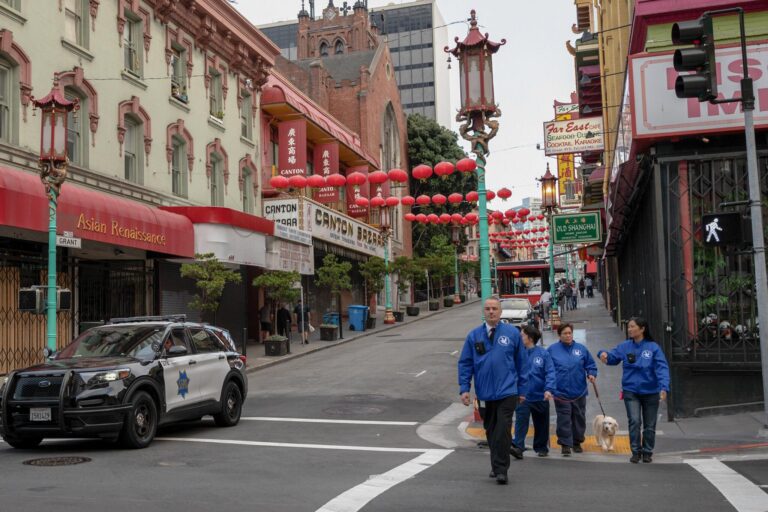Addressing the Rising Violence Against Asian Americans in San Francisco: Community Resilience and Policy Solutions
Growing Anxiety and Community Response Amid Increasing Attacks
Throughout 2021, San Francisco witnessed a disturbing increase in violent incidents targeting Asian American residents, igniting widespread apprehension and unease within these communities. Beyond concerns for personal safety, many individuals have voiced frustration over perceived inadequate responses from law enforcement agencies. This atmosphere of fear has led many to modify their daily habits, avoid certain public areas, and urge family members to remain vigilant. The collective distress underscores the pressing demand for effective strategies to halt the surge in racially motivated violence.
In reaction to these challenges, numerous grassroots groups have stepped forward to offer assistance and advocacy. Their initiatives encompass:
- Organizing neighborhood patrols to discourage potential aggressors
- Hosting educational sessions on self-defense and legal protections
- Partnering with municipal officials to enhance police-community communication
- Launching awareness campaigns to shed light on the consequences of racial hostility
| Event | Date | Neighborhood | Community Actions |
|---|---|---|---|
| Physical Assault in Chinatown | March 15, 2021 | Grant Avenue | Organized vigils and expanded neighborhood watch programs |
| Verbal Harassment at Transit Stop | April 2, 2021 | Sunset District | Conducted safety workshops and held protest demonstrations |
| Robbery Incident near Market Street | May 10, 2021 | Financial District | Provided legal assistance clinics and community discussion forums |
Unpacking the Underlying Factors Behind Urban Violence Targeting Asian Americans
Major metropolitan areas such as San Francisco have experienced a notable rise in hostility and violence against Asian American populations, revealing complex social and economic dynamics at play. The COVID-19 pandemic disproportionately affected Asian-owned enterprises, leading to financial hardships that have exacerbated community tensions. Additionally, the spread of misinformation falsely associating Asian Americans with the virus’s origin has intensified suspicion and fear, creating a volatile environment.
Researchers and community advocates point to several intertwined causes contributing to this troubling trend:
- Economic Displacement: The closure of small businesses and rising unemployment have strained community stability.
- Lack of Cultural Awareness: Insufficient education about Asian American heritage fosters misunderstanding and alienation.
- Media Portrayals: Sensationalized news coverage and stereotyping reinforce damaging myths.
- Inflammatory Political Discourse: Hostile rhetoric from influential figures can legitimize xenophobic attitudes.
| Cause | Effect |
|---|---|
| Economic Displacement | Increased neighborhood tensions and vulnerability |
| Cultural Ignorance | Social exclusion and mistrust |
| Media Stereotyping | Perpetuation of fear and prejudice |
| Political Hostility | Normalization of discriminatory behavior |
Calls from Community Advocates for Strengthened Safety and Support Networks
San Francisco’s community leaders have issued urgent appeals for a multifaceted approach to combat the rise in violence against Asian Americans. They stress that enhancing police presence alone is insufficient; a robust system of culturally attuned support services is essential to address both physical security and psychological wellbeing. Advocacy organizations are championing initiatives such as:
- Expanding multilingual crisis helplines to accommodate diverse language needs
- Establishing community-driven neighborhood watch groups with cultural sensitivity training
- Fostering partnerships between law enforcement and local communities to build trust and improve responsiveness
- Securing funding for trauma-informed counseling and outreach programs tailored to Asian American experiences
Recent surveys conducted by local nonprofits reveal significant gaps in existing services, as summarized below:
| Service Category | Identified Deficiency | Urgency |
|---|---|---|
| Emergency Helplines | Limited language options and restricted operating hours | High |
| Police Interaction | Distrust and delayed responses | High |
| Mental Health Services | Insufficient availability of culturally competent therapists | Medium |
| Community Engagement | Underrepresentation of Asian American voices | Medium |
Leaders warn that without these critical enhancements, the cycle of fear and social isolation will intensify, threatening the cohesion and wellbeing of San Francisco’s diverse population. They urge collaboration between government agencies and private organizations to deliver targeted, effective support.
Advocating for Robust Hate Crime Laws and Educational Campaigns
In light of the escalating violence against Asian Americans, policy experts are advocating for comprehensive reforms to hate crime legislation. They emphasize the necessity of laws that not only impose stricter penalties but also improve mechanisms for accurate reporting and data collection, enabling a clearer understanding of racially motivated offenses. Current statutes often fail to capture the full spectrum of hate crimes, including verbal abuse and intimidation rooted in racial bias, prompting calls for more precise legal definitions.
Alongside legislative changes, public education initiatives are recognized as vital in combating hate. Experts recommend campaigns that:
- Raise awareness about the psychological and communal impacts of hate crimes
- Encourage unity and mutual support across racial and ethnic groups
- Empower victims to report incidents without fear of stigma or retaliation
- Engage influential community figures to promote messages of acceptance and inclusion
| Advocacy Focus | Intended Outcome |
|---|---|
| Refining Legal Definitions | Comprehensive coverage of hate-related offenses |
| Enhancing Reporting Systems | Accurate data to guide policy decisions |
| Public Awareness Efforts | Strengthened community solidarity and reduced stigma |
| Community Involvement | Building cross-cultural partnerships |
Conclusion: Building a Safer, More Inclusive San Francisco
The surge in violent acts against Asian Americans in San Francisco has exposed deep vulnerabilities and heightened fears within the community. Addressing these challenges requires a concerted effort to understand the root causes of racial animosity, implement effective safety measures, and foster solidarity among all residents. By promoting open dialogue, enhancing support services, and enacting stronger legal protections, San Francisco can work toward dismantling the climate of fear and nurturing a city where diversity is celebrated and all individuals feel secure.




